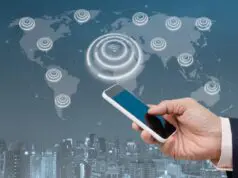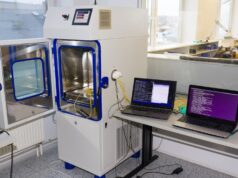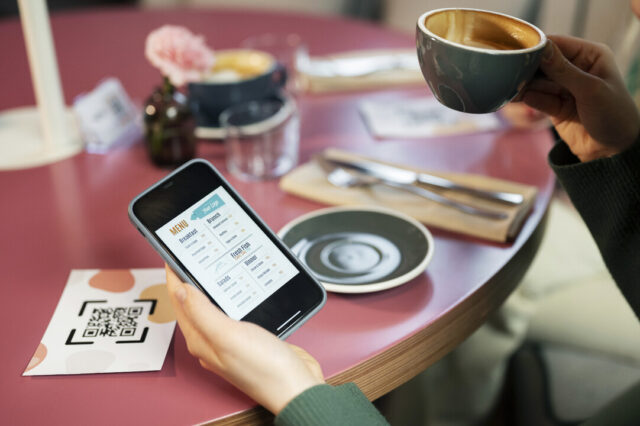
With the COVID-19 pandemic, companies across industry verticals have jumped over the precipice of technology adoption. McKinsey & Company even stated that the tech revolution has accelerated at least three to four years ahead of its time.
The same goes for the hospitality sector, where customers are demanding increased personalization and digitization. In the previous decade, the hospitality industry ranked low in terms of tech adoption. Today, it hardly bears any resemblance to its former lowly estate.
The smart hospitality market worldwide is expected to expand at a CAGR of 29.8% by 2027. This proves that hotels and restaurants are doing everything in their power to offer customers a seamless, tech-enabled check-in/check-out experience.
In this article, we will discuss the four key areas where technology has thoroughly gripped the hospitality sector.
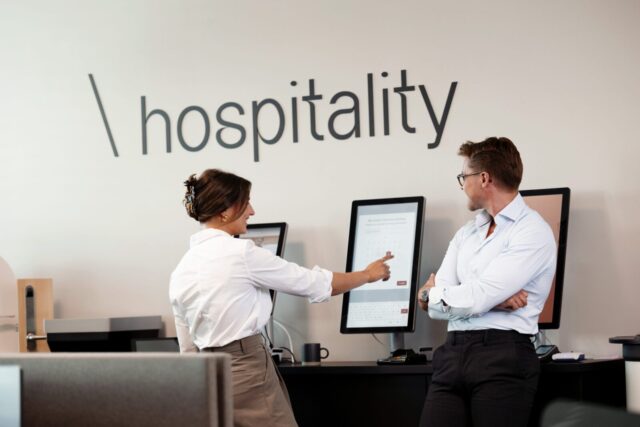
Mobile-Enabled Check-Ins
Initially, the concept of mobile check-in began for hygiene (contactless) purposes. However, it has grown in popularity due to the efficiency it promises for hotel staff and guests.
The process is simple – guests need to first register themselves via a preferred guest program. Then, using the same smartphone application, they can book the room of their choice (subject to availability).
Once the booking choice has been approved, the hotel will send a confirmation by sharing the room number and a personal identification code. All that guests need to do is enter the hotel and place their smartphones before the wireless key reader (often attached to the door).
The door automatically unlocks after the system reads the information and verifies the booking. Smartphone check-ins offer a wide range of benefits, as listed below.
- Enhances customer experiences through prompt, self-service
- Employees are freed from logistics burdens to focus on other concerns.
- Hotels get pronounced marketing opportunities in the form of preferred bookings, rebates on room upgrades, etc.
- Provides hotels with a competitive edge
- Chances of increased brand loyalty and customer retention are higher.
IoT for Smart Room Automation
The Internet of Things is enjoying its big moment across different industries, especially the hospitality sector. When guests check into a hotel to spend their stay during a vacation, comfort is a top priority.
IoT transforms a regular room into an intelligent one, enabling guests to opt for automated room lighting, favorable ambience, temperature control, and so on. One popular example is the facility of TV casting for hospitality, transforming the guest experience unlike any other.
While indoors, guests look for fun and sustainable entertainment options. But, can boring cable television survive in a day and age of OTT platforms? Allbridge states that smart TV solutions provide guests with a home-like experience.
In other words, they can cast their favorite web series or movies onto the room’s television using their smartphone. A case in point is the LG’s Pro: Centric TV with custom dashboards, voice control function, and IoT-powered in-room control.
Guests can easily navigate between screens, change viewing modes, and edit the TV interface for personalized in-room entertainment. Besides this, IoT has introduced asset tracking to help the staff track equipment on luggage racks. The anti-theft systems assure guests that their stay will not just be pleasant but also safe.
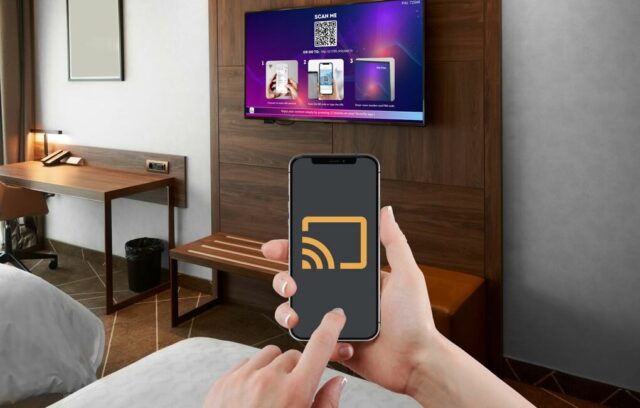
Cloud Computing to Improve Scalability
Though the hotelier industry is not known for swift tech adoption, its need for flexibility and agility is undeniable. Cloud computing is making it easier to safely manage huge volumes of guest data and use it to deliver better experiences.
There are at least four reasons why cloud computing has become the need of the hour for the hospitality sector –
- Hotels can scale up or down based on seasonal requirements since most cloud providers offer a pay-as-you-scale model.
- Employees get to access important customer details anytime and from anywhere. They can also attend sudden group discussions or meetings.
- Through proper integration of multiple application systems, cloud computing enhances guest experiences.
- The hotel incurs zero hardware costs as the bug fixes are handled by the cloud service provider.
This is why cloud-based applications are being used across different areas – point-of-sale, customer management, marketing, and event management. Right from pre-arrival through en-route hotel to smooth departure, guests can enjoy a frictionless and no-surprise experience.
Contactless Payments
The use of cash and other physical modes of payment like debit or credit cards have become relics of the bygone era (especially within the hotelier industry). Today, contactless methods using the smartphone are becoming popular.
Let’s understand this technology with the help of an example – suppose a guest visits the premises to book a room. Upon being prompted for payment, all they need to do is hold their phone or card within two inches of the code scanner.
Once the system recognizes the card or phone, the transaction is approved using a green light or beep. The transaction can be done through a dedicated application with just a single tap. This contactless payment method is hygienic, lightning-fast, secure, and offers superior levels of customer satisfaction.
In the upcoming years, investments in a digital guest journey are only expected to rise. A 2022 study discovered that at least 77.6% of hoteliers were planning to invest heavily in tech adoption within the next three years.

As the hands of the clock advance, we will see more automation, IoT, smart entertainment and energy, robotics, and more. This is a wake-up call for hotels still not prepared to gear up for a new era of hospitality.

